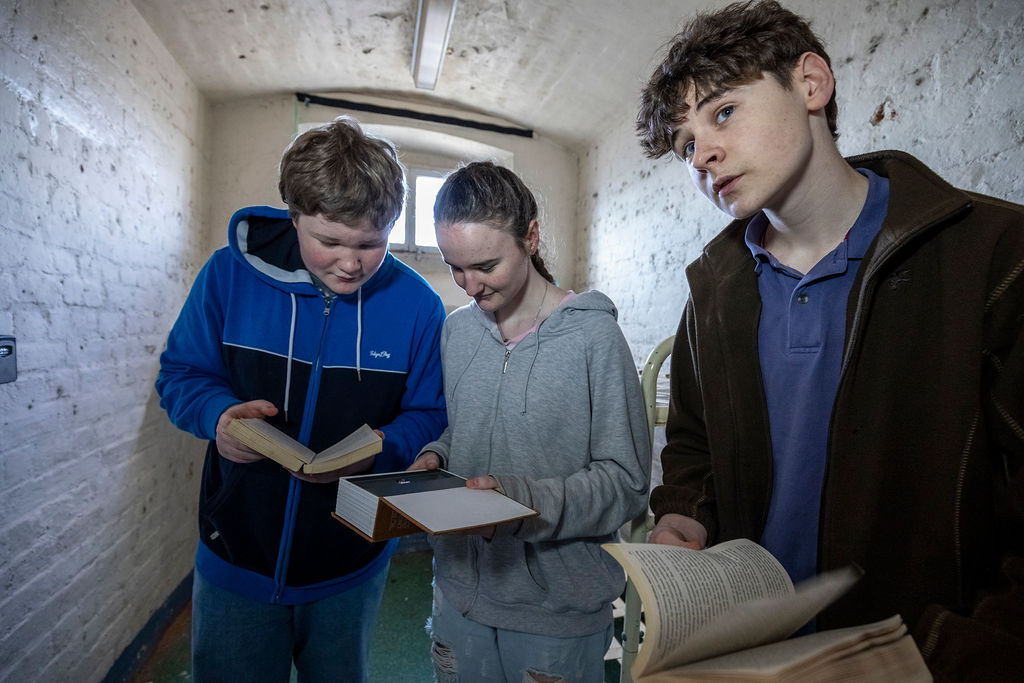The Shrewsbury Flaxmill Maltings, known as the ‘grandparent of skyscrapers’, has been honoured with a prestigious Europa Nostra Award in the Conservation & Adaptive Reuse category. This award is part of the 2024 European Heritage Awards / Europa Nostra Awards, co-funded by the Creative Europe programme of the European Union.
Shrewsbury Flaxmill Maltings has been brought back to life as an adaptable workspace, leisure destination, and social enterprise hub. This flagship heritage regeneration project by Historic England was funded through a combination of sources, including the National Lottery Heritage Fund, Historic England, Local Enterprise Partnership, and Shropshire Council.
Additional funding for training and special projects was raised via crowdfunding, charitable trusts, and individual philanthropy, with volunteers dedicating over 17,000 hours to bring the story of this special place to life.
Originally built in 1797, Shrewsbury Flaxmill Maltings was the world’s first iron-framed building, a groundbreaking technology that paved the way for modern skyscrapers. For nearly a century, the site operated as a state-of-the-art steam-powered flax mill, later being converted into a maltings and used as a temporary military barracks during the war. Following the closure of the maltings in 1987, the future of the site became increasingly uncertain. Vandalism, poor maintenance and under investment had left the building fabric in a perilous condition and top of the ‘Heritage at Risk’ Register. In 2005, Historic England stepped in as ‘owner of last resort’ to reverse the decline and lead a partnership to find a new use for the site.
The restoration project, completed in three stages, involved extensive surveys, on-site trials, and specialist input to manage historic building risks. A notable innovation in the project was the development of a new method for strengthening the masonry around the existing iron frame, ensuring the structure could act as an alternative load path in case of failure. This approach allowed the original iron frame to be retained and reinforced with a hidden steel grillage and new columns, preserving the building’s historical integrity.
Visitors can now explore the restored Jubilee Tower and a new exhibition space, The Mill, which highlights the site’s role in the Industrial Revolution and global architectural history. The upper floors provide flexible office space, while the Kiln hosts commercial tenants, combining historic preservation with modern functionality.
The local community was engaged to help energise interest in the project by hosting events, art exhibitions, and Heritage Open Days. A heritage skills programme delivered during construction offered work placements, site tours, and training events, enhancing local skills and employment opportunities. This community involvement has resulted in a greater appreciation of the restoration’s impact on the area’s regeneration.
“The restoration of Shrewsbury Flaxmill Maltings’ iconic building serves as a beacon for the conservation and adaptive reuse for industrial heritage sites in Europe. Through innovative project management, logistical complexities were navigated, and risks were mitigated effectively, ensuring its success”, the Awards’ Jury said.
“Beyond its architectural significance, the project had a profound community impact, fostering engagement and skill development while creating employment opportunities. By carefully preserving original features and repurposing the building’s original materials where possible, its historical integrity was honoured. It sets a pioneering example for future projects of its kind”, the Jury added.









